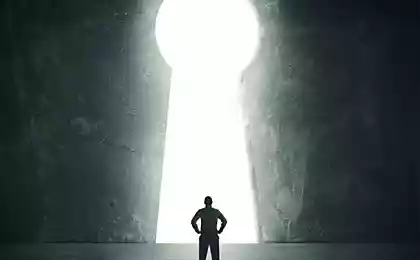183
5 signs that the reason for your loneliness is indecision
When the fear of choice becomes a prison for the soul

Imagine a man standing in front of a café window for half an hour, unable to decide whether to enter or not. It is warm inside, people laugh, but he continues to freeze on the street, tormented by questions: “What if I am misunderstood?” This picture is a metaphor for the lives of millions of people for whom indecision has become an invisible wall between them and fulfilling relationships.
Indecision is not just a character trait, it is a psychological mechanism that can radically change the trajectory of our social life. Studies show that people with high levels of indecision are 3 times more likely to experience chronic loneliness compared to those who make decisions with confidence.
It's important to understand: Indecision does not equal caution. Caution helps to avoid real dangers, and indecision paralyzes us in the face of imaginary threats, making it impossible to build meaningful connections with people.
Sign 1: Endless delay of the first step
Anna had known her colleague's phone number for three months. Every day she was going to text him, ask him to meet for coffee. And every day I found a new reason to postpone it until tomorrow. "It's Monday, he's tired," "It's Friday, he has plans for the weekend," "Maybe he's busy with the project." In the end, a colleague found another job, and did not know about her sympathy.
Psychological mechanism
An indecisive person’s brain generates endless failure scenarios, creating the illusion that “tomorrow will be a better moment.” Neuroscientists call this the “avoidance loop,” a condition where the brain’s prefrontal cortex blocks action because of a reassessment of potential risks.

Lifehack: The 5-second rule. When you feel the urge to do something, count 5-4-3-2-1 and act immediately. This interrupts the cycle of doubt before it develops.
Sign 2: A Perfectionist Approach to Communication
"I can't go to a party until I lose 5 kilos," "I'm not ready for a relationship until I find a better job," "I'll text her when I come up with the perfect message." Sounds familiar?
Michael, a 32-year-old computer programmer, spent two years preparing for the perfect date. He studied relationship psychology, went to the gym, saved up money for an expensive restaurant. During this time, three girls who showed interest in him met other partners. When Michael finally decided he was ready, there was no one else to prepare for.
Scientific fact
Barry Schwartz’s study, The Paradox of Choice, found that the pursuit of the perfect solution often leads to a complete rejection of action. People who are looking for the “best” option end up with nothing, while those who are satisfied with “good enough” build successful relationships.
Sign 3: Avoiding “uncomfortable” conversations
Indecisive people masterfully avoid those that can lead to intimacy. They are afraid to ask personal questions, share their own experiences, discuss plans for the future. As a result, their communication remains on a superficial level – weather, work, movies.
Elena dated Alexei for three months, but never spoke to him about his feelings. She was afraid to appear intrusive, afraid to hear that he was "not ready for a serious relationship." As a result, Alexei himself ended the relationship, deciding that Elena was indifferent to him.
Key point: Intimacy comes not from perfect conversations, but from honesty and vulnerability. Research by psychologist Arthur Aron has shown that people begin to feel close after 36 minutes of open dialogue.
Sign 4: Interpreting Neutral Signals as Failures

A colleague didn't respond to a message within an hour? "He must have had enough of me." Did the girl cancel her date due to illness? “She’s just looking for a way to get rid of me.” A friend didn't invite you to the party? "So he's not interested in me."
This interpretation of neutral events as personal failures is a classic sign of indecision multiplied by low self-esteem. Man is so afraid of rejection that he begins to see him where he is not.
The cognitive trap
Psychologists call this “confirmation bias” – we only notice facts that confirm our fears while ignoring contradicting evidence. For example, remember one unanswered message, but forget ten warm conversations.
Sign 5: Constantly looking for “guarantees” in a relationship
“How do I know if she likes me?”, “What are the signs that he’s ready for a serious relationship?”, “How do I make sure she doesn’t change her mind?” Indecisive people are looking for absolute guarantees where they fundamentally can not be in human relations.
Dmitry spent six months analyzing the behavior of his colleague: counted how many times she smiled at him, recorded the time of response to messages, looked for hidden meanings in each phrase. But I did not dare to ask her out on a date because there were no guarantees. He later learned that she had waited a long time for an initiative from him, and then simply lost interest.
The paradox of indecision
The more we look for guarantees, the less likely we are to get them. Relationships are built on mutual risk, on the willingness to be vulnerable. Trying to avoid this risk automatically eliminates the possibility of intimacy.
How to overcome indecision: practical steps
The "Little Victories" technique
Start with micro-actions: say hello to your neighbor, ask a colleague a personal question, compliment someone. Each small victory strengthens the neural pathways of confidence.
The "Good enough" rule
Set a minimum standard instead of an ideal one. For example, “I’ll text her when I think of a normal message” rather than “when I think of the perfect one.”
“What’s the worst thing that can happen?”
Bring your fears to their logical end. Most often it turns out that even the “worst” scenario is not so scary and quite worrying.
Remember:
Every rejection brings you closer to a yes that will change your life. Statistics show that people who received 100 rejections, on average, receive 20 consents. And those who do not take risks at all get zero of both.
Conclusion
Indecision is not a sentence, but a habit that can be changed. Every day, when you choose action over reflection, comfort over fear, you are rewriting your emotional agenda.
Remember, the strongest relationship didn’t start with perfect conditions, but with one bold step toward the other. You can take that step right now.
Glossary
Indecision A persistent tendency to delay decision-making for fear of making a mistake or facing negative consequences.
The avoidance loop A psychological mechanism in which the brain generates endless excuses for not acting, creating the illusion of a “best moment in the future.”
Prefrontal cortex The area of the brain responsible for decision-making, planning and impulse control. In case of indecision, it can block actions due to overestimation of risks.
Confirmation bias Cognitive error, in which a person notices and remembers only information confirming his attitudes, ignoring contradictory facts.
The paradox of choice A psychological phenomenon in which an excess of options leads to difficulty in choosing or a complete refusal to make a decision.
What to do if a friend tries to imitate you in everything
7 ways to get rid of self-pity to become happier and more successful























